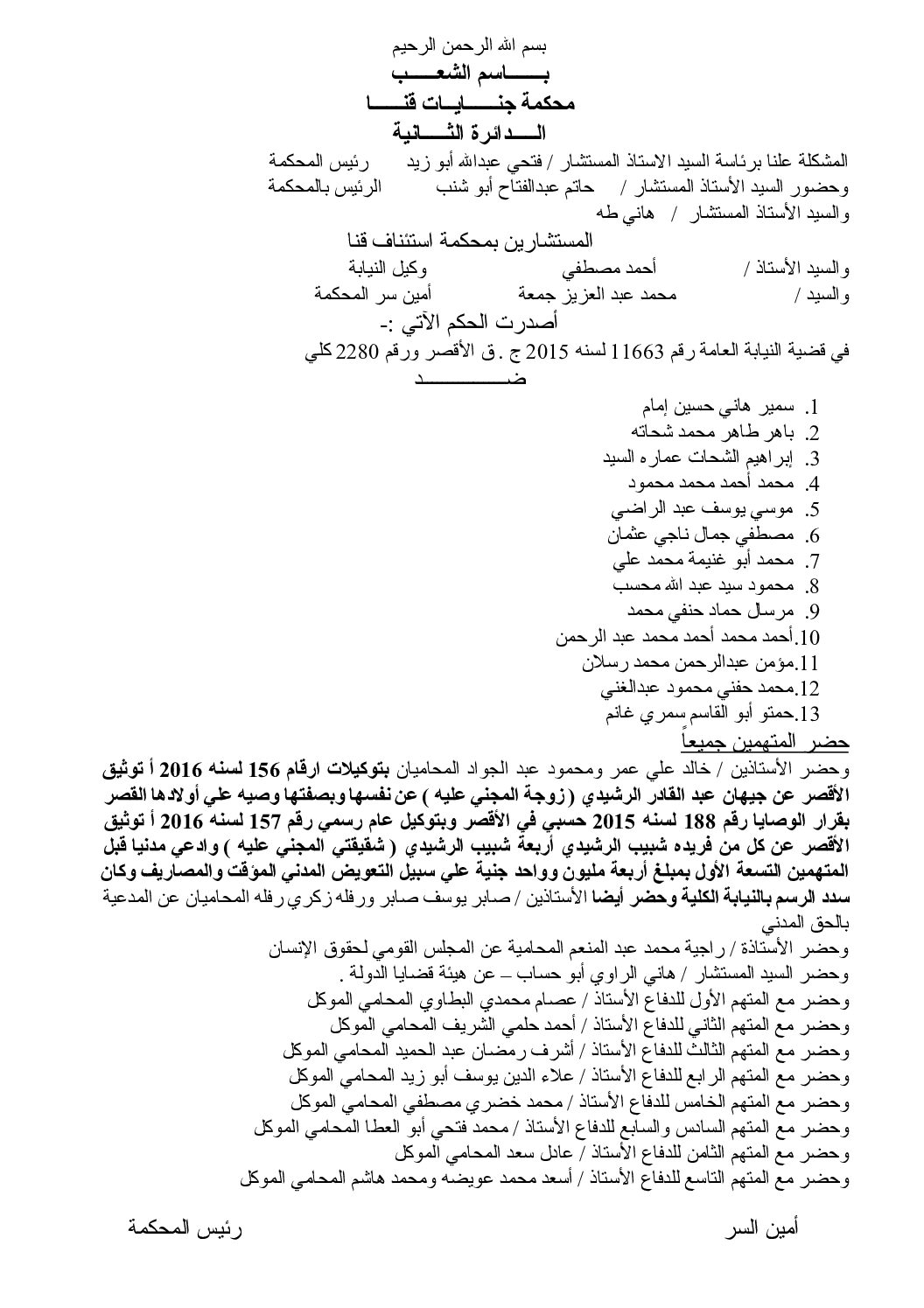In A New ECESR Legal Win, State Council Rules On The Right For In-Kind Compensation For Expropriation

ECESR Lawyers Get Important Judgment Regarding Compensation in Kind for Expropriation for Public Purpose
State Council Judgment Establishes A Legal Precedent Regarding in-Kind Compensation besides Financial Compensation
Judgment Obliges Administrative Bodies to Fulfill Obligations
ECESR lawyers obtained an important judgment from the Judicial Administrative Court in Fayoum (case no.8310 for judicial year 1). The ruling establishes a new judicial principle in social and economic rights, in particular the right to receive compensation in kind for property expropriated for public purpose.
Case Background
Pursuant to prime minister decree number 2136/2009 issued on 5/8/2009 to consider the first and second Fayoum ring road interchanges project as public purpose works, the lands needed for executing the project were seized. Pursuant to this decree, an area of land amounting to 750 (m2) owned by Husein Rizk Fath-El-Bab at Al-Diwani plot number 63 was needed for the project.
On 10/4/2011 the owner submitted a request to the governor of Fayoum refusing the financial compensation and demanding compensation in kind in the form of allotting an equivalent and equal area of land to the one expropriated. The governor approved the request after the January revolution, but later on the administrative body did not take the executive procedures necessary and refused to allot the land.
ECESR lawyers representing Husein Rizk Fath-El-Bab filed a lawsuit with the State Counsil to demand in-kind compensation instead of financial compensation. The judgment establishes an important principle regarding compensation in kind.
Grounds of Judgment
In its grounds for judgment, the court betook that law 10/1990 sanctioned expropriating real estate required for public purpose, including road projects and extensions, provided that a compensation is paid. The lawmaker decided that compensation is estimated by a committee formed in each governorate based on the prevalent prices at the time the expropriation decision is issued. The administrative body requesting the expropriation was required to deposit the compensation amount within no more than a month of the date of issuing the decision at the treasury of the authority enforcing the expropriation procedures. Since the citizen has submitted a request to the governor of Fayoum on 10/4/2011 to refuse financial compensation and demand compensation in-kind in the form of allotting an equivalent area of land to the one expropriated, and since the governor approved, the administrative body is bound to execute the decision as per the principle of legality.
The judgment emphasized that the citizens are liable to trust the legality of the conducts of any public administration body even if it was an irrespective administrative body provided that those conducts does not appear contradicting according to the understanding of ordinary citizens with the constitution and legislation, and not resulting from manipulation on their part. The citizens are of right, in the framework of legality and the rule of law and in accordance with sound state administrative and governing practices, to trust the conducts of the administrative body and arrange their affairs and conditions according to the contract issued or allotment given by the executive administration body, or the conducts or recommendations taken in relation to his affairs. Thus, the administrative body shall not retract its conducts to damage the personal status of the citizens by adopting an interpretation different to what was already enacted, drafted and announced as a public call for contracting. The purpose of the above is to protect the personal status and apparent position gained, which necessitates respect to provide the required stability of relationships with public administration bodies and abstain from threatening the legitimate trust of the citizens in the conducts of administration bodies.
Head of ECESR legal unit Alaa Abd-El-Tawab said that the constitution stresses on individual ownership and protects it with various guarantees. He said that expropriation is a special procedure that should take into account the balance between individual and public interests, or in other words the graduation of interests. He added that the state should nevertheless allow for repairing the damage resulting from expropriation while estimating compensation; and that compensation in kind guarantees repairing the damage.

